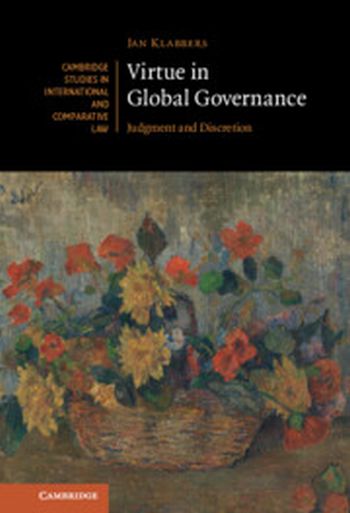
Since rules - legal, ethical or otherwise - cannot determine their own application, they require persons of flesh and blood to interpret and apply them in concrete cases. Presidents and prime ministers, judges, prosecutors, mediators, leaders of international organizations, and even religious leaders and public intellectuals make decisions on how best to understand rules and how best to apply them. It stands to reason that their character traits influence the sort of decisions they take. This book provides the first systematic framework for discussing global governance in terms of the virtues, and illustrates it with a number of detailed examples of concrete decision-making in specific situations.
Virtue in Global Governance combines insights from law, ethics, and global governance studies in developing a unique approach to global governance and international law.